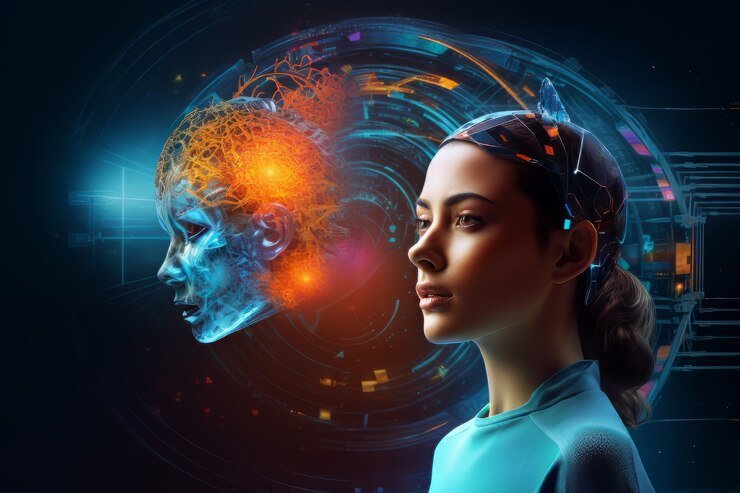
Curious to know the variation in AI and human brain? You are at the right place. Let’s explore the basic variations, strong points, and drawbacks of both AI and human intelligence in order to reveal how machine learning algorithms interact with the minutest elements of human thoughts.
The Essence of AI:
Artificial intelligence is deeply grounded in a deterministic framework of algorithms, data, and computation. It is clear that AI is actually an outcome of human creativity, and hence, a reflection of the bond between a creator and the creation.
The Fabric of Cognitive Ability in Man:
There is no doubt that human cognition, which is full of variations and surprises in almost everything, stands at divergent poles from artificial intelligence. Human brain is the most complex work of nature, a network of billions of neurons playing out a symphony that perceives, feels and thinks at once.
Comparison: Artificial intelligence vs Human Intelligence
1. Learning Capacity
AI: While AI is equipped with the first thing that stands out at the top, it is rapid assimilation and synthesis of copious volumes of data and the crushing evidence of the power of machine learning and data-driven insights on several frontiers.
Human Intelligence: In contrast, human cognition represents a living testament to the remarkable sustainability of learned learning and experience-based wisdom.
2. Creativity
AI: With the advent of computational creativity, AI systems are about to change artistic creation at a fundamental level with new compositions and artifacts being developed with levels of precision and speed never seen before.
Human Intelligence: Nonetheless, amid all the symphony of AI-driven creativity human inventiveness is unmatchable in its profundity, complexity and emotional appeal.
3. Emotional Intelligence
AI: With all the improvements done in affective computing and emotion recognition, AI systems are still grappling with the subtle complexities of human emotions since they lack an emotional depth of empathy and social intuition subsumed in human cognition. and social interaction.
Human Intelligence: Human intelligence is a testament to how emotional intelligence that springs from social intuition can survive over time. Whether interpersonal or conflict resolution communications, this single quality of empathy is what holds society together and makes us understand one another better.
4. Adaptability
AI: On top of being adaptive algorithms and reinforcement learning agents, these AI systems are excellent in rapid adaptation and optimization associated with changing environmental stimuli.
Human Intelligence: However, amid all this noise about adaptability enhanced by AI, human cognition still remains unequalled due to its depth as well as complexity and resilience. From cognitive flexibility domains to the emotional resilience ones, human adaptability is beyond computational analysis capturing the ineffable spirit of intuition, creativity and cultural significance.
The Future Landscape:
In this innovative journey of intelligence, AI and human cognition come together only to fall apart from each other creating new paths towards a future that comprises hopes and inventions. By combining AI’s advantages with human intelligence, we set on a common journey of exploration and invention in a world where technology enhances human potential, promotes empathy, and makes our lives more meaningful. Summing it up , we can conclude that within the complex concept of linking artificial intelligence (AI) with human intellect lie traces of humanity interwoven with unlimited technological possibilities.









